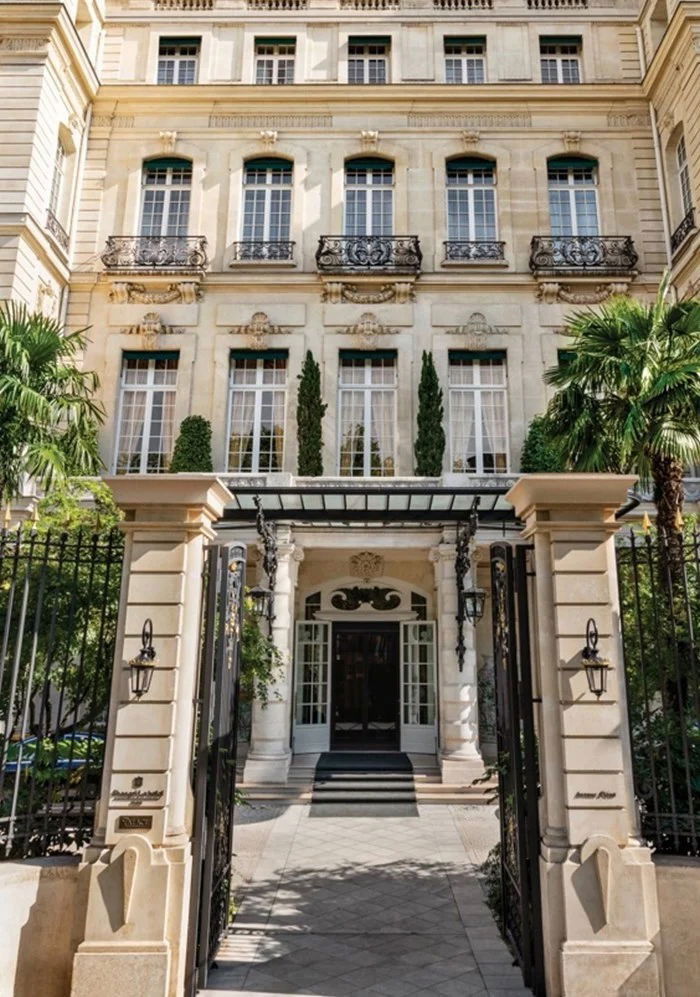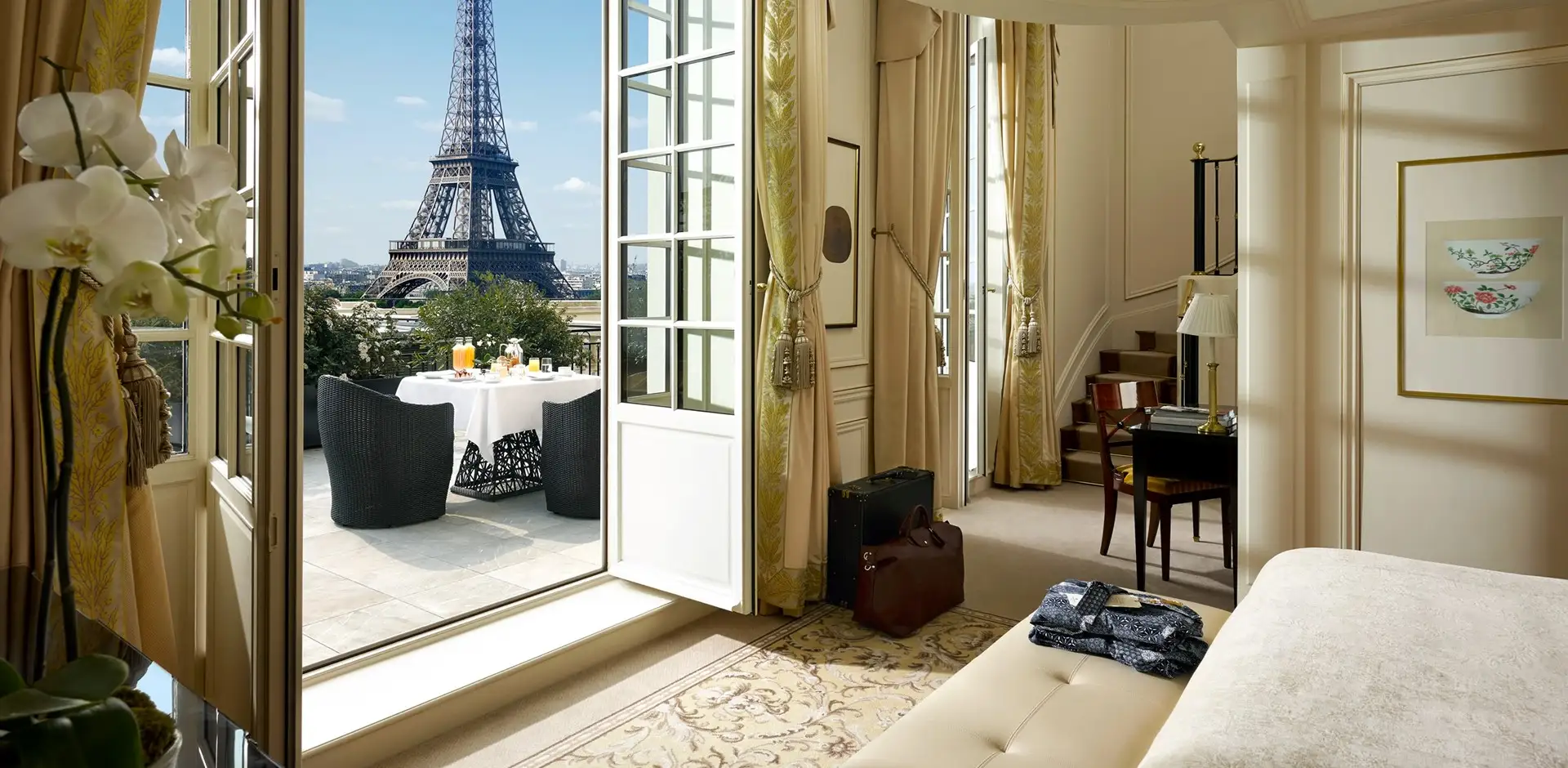Saudi Outbound Elite: our global selection of luxury hotels: Xavier Bourlette spotlights the Shangri-La Paris

Luxury expert Xavier Bourlette, known for his work with some of Saudi Arabia’s most discerning travellers, launches into a new series on the world’s top hotels that cater to high-end Arab guests, beginning with the Shangri-La Paris.
The legacy of Parisian palace hotels
In Paris, there are 12 hotels with the prestigious “palace” designation, serving as ambassadors of excellence and hospitality. While not all of them enjoy the same level of fame, each offers a unique appeal. To kick off this series, I turn the spotlight on the Shangri-La Paris, an iconic property that has set itself apart through a combination of history and luxury.Originally a private residence built by Prince Roland Bonaparte, a grandnephew of Napoleon Bonaparte, the hotel dates back to the late 19th century and was officially recognised as a historical monument in 2009. Located in the prestigious 16th arrondissement, it offers an exclusive atmosphere while still being near major Parisian landmarks.
A historic residence with modern luxury
The Shangri-La Paris can best be described as a piece of living history. Its transformation from a princely residence into a luxury hotel has maintained the elegance of its original architecture while incorporating modern amenities. The property includes:
- 63 rooms and 33 suites, each distinctively designed to reflect a blend of Parisian sophistication and subtle Asian influences;
- Four signature suites, including the Prince Bonaparte Apartment and the Shangri-La Suite, known for their expansive layouts and luxurious amenities;
- Two restaurants, La Bauhinia and Shang Palace (the only Michelin starred Chinese restaurant in Paris);
- A wellness centre with a 17-metre pool, providing an exclusive setting for relaxation.
A tailored welcome
From the moment I arrived, I felt truly welcomed, greeted warmly with smiles and kindness. The staff were present yet unobtrusive, discreetly attentive to every need. There’s no overly formal or obsequious service here; instead, the staff maintain a balanced presence, meeting requests with precision and clarity.
The luxurious Parisian atmosphere, with its wood panelling and marble, is subtly paired with an Asian touch, creating a timeless, cosmopolitan setting that appeals to those who appreciate both cultural depth and luxury.
Signature suites: elegance and privacy
I had the chance to visit two of the hotel’s most notable signature suites.)
- The Prince Bonaparte Apartment, spanning over 300 square metres, is decorated in the Directoire style with period artworks, crystal chandeliers, and gilded accents. Staying here feels like an immersion into another era, surrounded by historical charm yet equipped with all modern comforts—high-speed Wi-Fi, access to over 2,000 digital publications, and luxury amenities by Guerlain. Even the bedding is patented to Shangri-La, with mattresses designed to mould to your body.
- The Shangri-La Suite, located on the seventh and top floor, is a modern space blending Art Deco and Asian details. The real highlight here is the expansive terrace, offering a panoramic 180-degree view that stretches from the Eiffel Tower to Montmartre. This suite offers an ideal setting for private dining or simply enjoying the city’s most famous scenery.
As you might guess, the rooms are “palace,” and the service is “palace.”
A commitment to service excellence
I took a moment to congratulate several members of the team on the quality of the service, and each time I was told they consider themselves like a family—highlighting the importance of management within this luxurious establishment. This family-like dynamic is apparent in how the staff interact with guests, fostering an atmosphere of genuine hospitality.
The staff are well-trained to welcome guests from all cultures, including provisions for those from the Middle East, such as prayer mats and halal menu options.
A luxury destination for high-end Arab travellers
As the first feature in my new series, the Shangri-La Paris exemplifies a hotel that meets the needs of high-end Arab travellers through its blend of historical luxury, personalised service, and cultural awareness. It provides a refined setting where privacy and attention to detail are prioritised, setting a standard for other luxury properties.In future articles, I will continue to explore hotels around the world that excel in catering to high-end Arab guests, showcasing destinations where cultural understanding and bespoke service create an exceptional experience.
